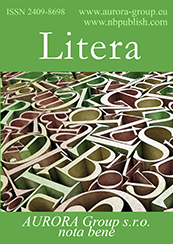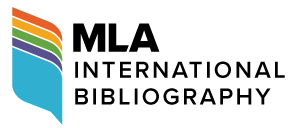Author's view
Reference:
Granin, R.S. (2013). The Problem of Objectivation in Nikolai Berdyaev's Existential Philosophy. Litera, 2, 1–23. https://doi.org/10.7256/2306-1596.2013.2.294
Abstract:
In article the philosophy of spirit of Berdjaev developed within the limits of his existential metaphysics is analyzed. The basic problem of this philosophy is the relation of existence of spirit to world life, numinosum to phenomenal. The form of such relation, according to Berdjaev, is the function of human knowledge which hypostasis mind designs in effect (universals, substances), then socializes them after what they get categorial obligatory character, their own being. Struggle against the objectivation of spirit is represented by Berdjaev eschatologically, through the transcendental exit from the limits of the phenomenal cause and effect world in a reality of the primordial freedom, the existence.
Keywords:
reality, existentialism, implementation, objectivation, symbolization, antinomy, eschatology, utopia, initiation, metaphysics
Literary criticism
Reference:
Krotovskaya, N.G. (2013). Vladimir Nabokov. Lectures on Foreign Literature: Robert Louis Stevenson . Litera, 2, 24–66. https://doi.org/10.7256/2306-1596.2013.2.132
Abstract:
The article is based on the lecture course called 'Masters of European Prose' that was prepared for students of Cornell University. These lectures describe Vladimir Nabokov as a thoughtful, penetrating and, at the same time, biased researcher who taught his audience a wonderful lesson of 'thorough reading' when a reader pays special attention at details and style of writing of the great authors. Based on the example of a well-known novel 'Strange Case of Dr Jekyll and Mr Hyde', Vladimir Nabokov analyzes a wonderful style and writing methods used by Stevenson to make his fantastic story sound rather true and real. Special attention is paid at the problem of difficult relations between the Good and the Evil, their struggle and interaction.
Keywords:
philology, creative writing, style, image, symbol, intonation, figure of speech, the Evil, fantastic, real
Linguistics
Reference:
Polinichenko, D., Burkhanova, M.S. (2013). Amateur Linguistic Concepts in Modern Russia (Based on the Example of Mikhail Zadornov's Creative Work) . Litera, 2, 67–81. https://doi.org/10.7256/2306-1596.2013.2.693
Abstract:
The article is devoted to historical and linguistic views of a famous Russian satirist Mikhail Zadornov. The authors of the article analyze the principles used by Zadornov in etymologization of Russian and English words. It is shown that the satirist's views are quite similar to moern Russian amateur linguistics. This is true for both theorizing on linguistic topics (principles of etymologization, original views on morphology and lexical semantics, the priority of the Russian or the Proto-Slavic language and compassion towards dilettant language theories of XIX century) and his particular views, for example, his negative attitude to 'official science' and underlined patriotism. Despite obvious ifluence of other amateur authors on Zadornov's style (A. Dragunkin and S. Alekseev first of all), it is no doubt that he is the author at least of a part of his propagandized ideas. Zadorov plays an important role in modern Russian amateur linguisticsand should be really taken into account.
Keywords:
amateur linguistics, etymology, pseudo science, Mikhail Zadornov
Aesthetics
Reference:
Skvortsova, E.L. (2013). Art Tradition and The First Steps of Theoretical Aesthetics in Japan. Litera, 2, 82–136. https://doi.org/10.7256/2306-1596.2013.2.74
Abstract:
Annotation. Introduction of Western aesthetics in Japan during 1870-1930-ieth years had been an exceedingly complicated process implying not only an acquaintance and understanding of a considerable amount of philosophical research in foreign languages, but also “construction” of scientific terminology. Within 60 years Japanese scholars managed to organize two main centers for aesthetical studies in the Universities of Tokyo and Kyoto, where able students acquired a high-level education, which made it possible to place the implicit aesthetics of traditional Japan into the colorful “mosaic” of the world aesthetics.
Keywords:
art tradition, bodily synthesis, Japanese aesthetics, field - nothing, aesthetics institution, Kitaro Nishida, Buddhist teaching, practical intuition, Daoism, imamiti tomonobu
Language
Reference:
Rustamov, A.M. (2013). Geographic Terms and Names of Places in the Zangezur Area. Litera, 2, 137–150. https://doi.org/10.7256/2306-1596.2013.2.666
Abstract:
The author of the article analyzes geographic terms and how these terms derived from names of places in the Zangezur Area of the Trans-Caucasian Region. There is an ethnic diversity in Zangezur and throughout Azerbajan in general which, of course, is reflected in names of places there. Toponymic terms of Turk origin are divided into two groups: 1) terms of ancient-Turk origin and 2) terms of Azerbajanian origin. These geographic names and terms are the most important evidence of the history of these territories. Ancient Turk roots in names of places in the Zangezur area prove that Turk ethnic groups used to live there even before Christ. Geographic names like that reflect history and geography of the country and therefore they prove that Turk tribes actually lived there.
Keywords:
Zangezur area, placename, name study
 This work is licensed under a Creative Commons Attribution-NonCommercial 4.0 International License.
This work is licensed under a Creative Commons Attribution-NonCommercial 4.0 International License.











 © 1998 – 2025 Nota Bene. Publishing Technologies. NB-Media Ltd.
© 1998 – 2025 Nota Bene. Publishing Technologies. NB-Media Ltd.




